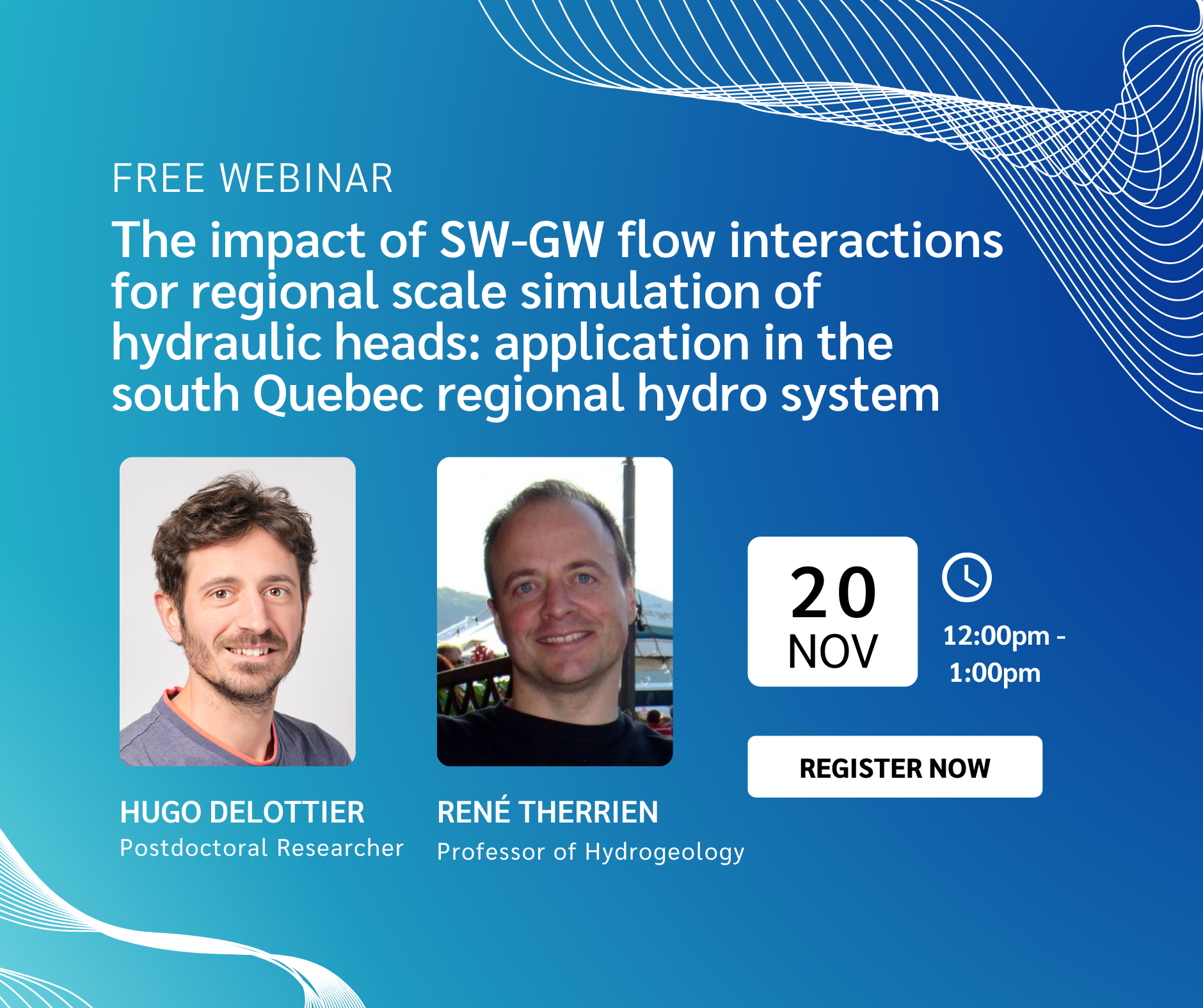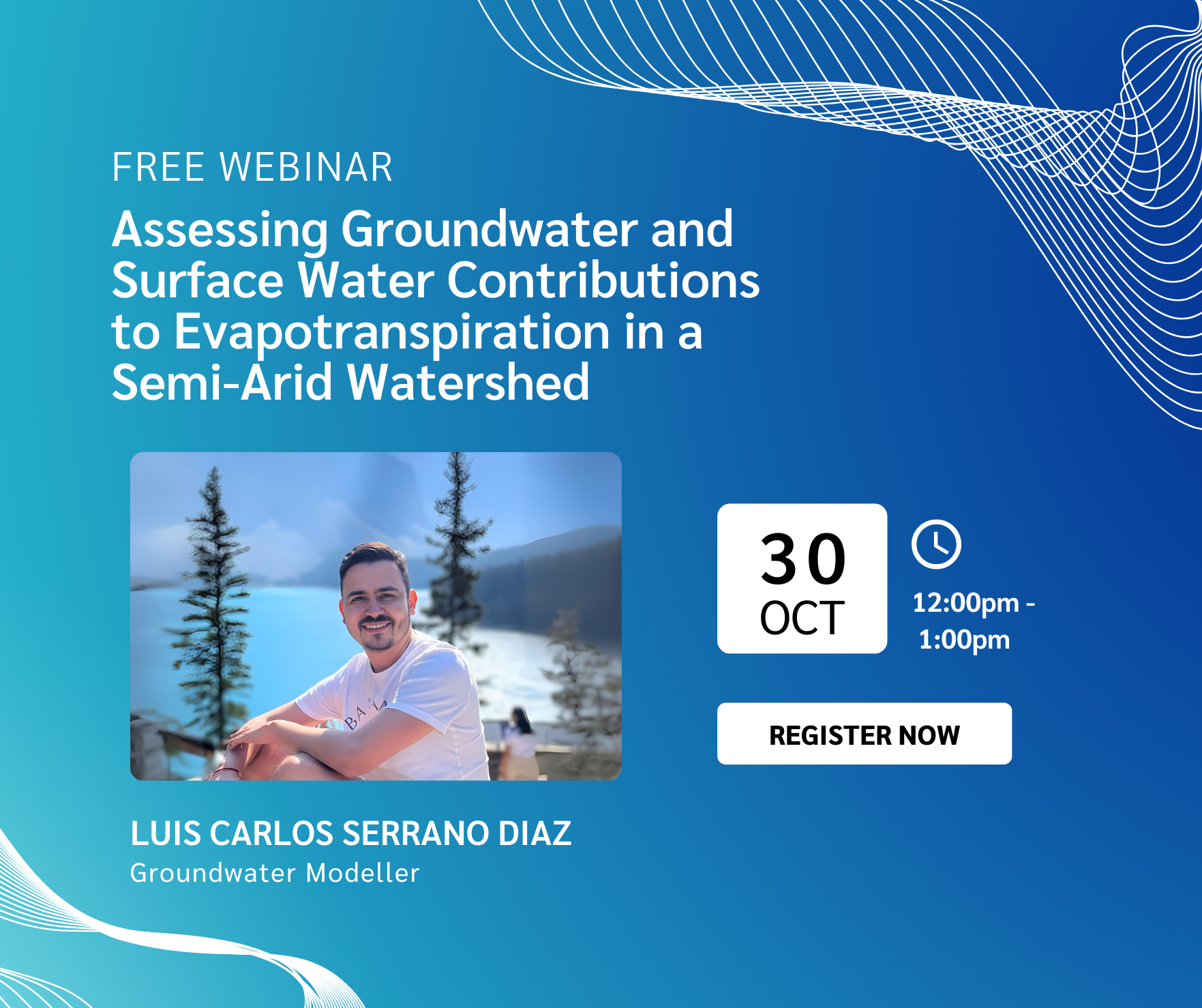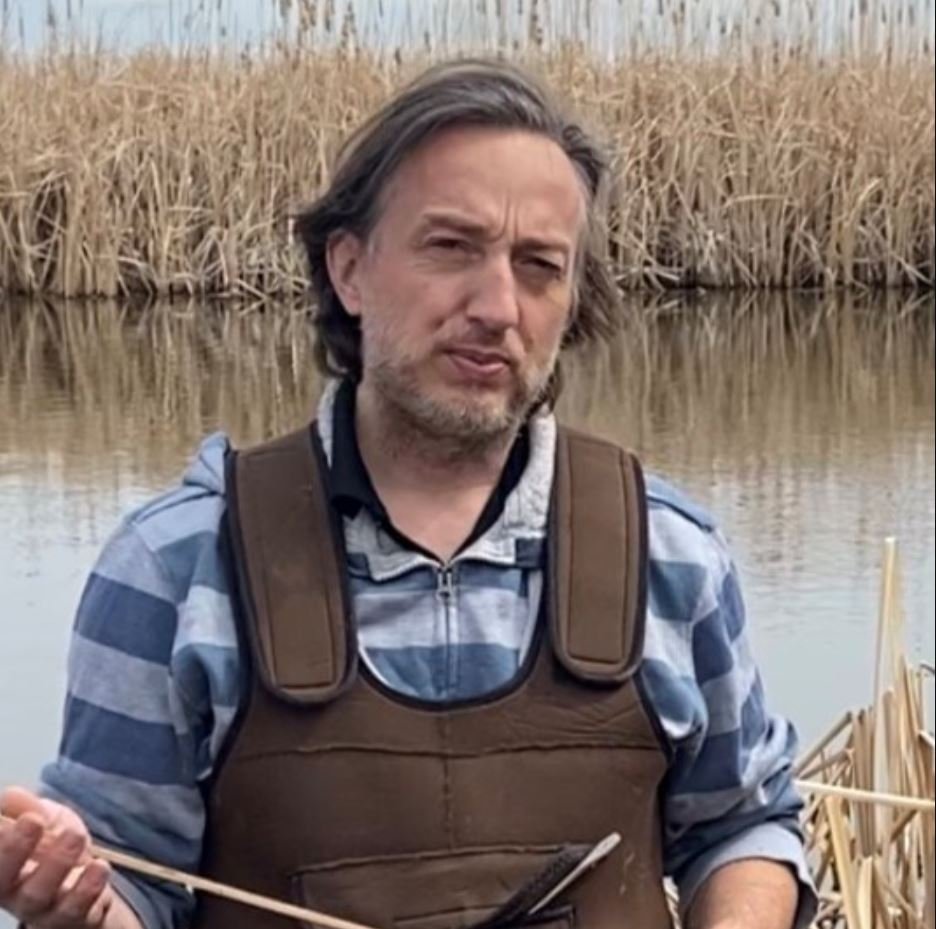
Webinar - Tools and Strategies for Agricultural Water Management
Join us for an enlightening webinar as we dive into the tools and strategies for agricultural water management.

Webinar - Introducing hgs2vtu for HGS model post-processing
Join us for an informative webinar introducing hgs2vtu.exe, the powerful new post-processing utility for HydroGeoSphere (HGS) model outputs.

Webinar - Assessing the Sensitivity of Subsurface Mine-Dewatering Simulations to Surface Water Representation
Join us for an insightful session exploring how climate change may influence mine dewatering strategies, featuring cutting-edge integrated hydrologic modelling approaches.

Working at Aquanty – Coop Placement Information Session
As Aquanty continues to grow we are keen to bring on bright young minds who are interested in fully integrated hydrologic modelling, and to help them transition into a successful career in water resources modelling/engineering. This information session will help prospective co-op students to learn more about working at Aquanty and what kinds of projects you can expect to work on.

Webinar - HydroSphereAI: Machine Learning-Driven Insights and Hydrological Forecasting in a Changing Climate
Join us for an insightful webinar on HydroSphereAI, where we explore a cutting-edge Machine Learning (ML)-driven approach to hydrological forecasting. Learn how our models improve streamflow predictions, even in ungauged basins, and how real-time data integration enhances forecasting accuracy. We’ll also demonstrate the HydroSphereAI platform and its practical applications for water resource management.

Webinar - The impact of SW-GW flow interactions for regional scale simulation of hydraulic heads: application in the south Quebec regional hydro system
Join us for an enlightening webinar as we dive into how the interaction between surface water (SW) and groundwater (GW) affects the accuracy of regional-scale simulations of water table elevations in Southern Quebec.

Webinar - Assessing Groundwater and Surface Water Contributions to Evapotranspiration in a Semi-Arid Watershed
Join us for an enlightening webinar as we explore how actual evapotranspiration (AET) dynamics in the North Saskatchewan River Basin are influenced by groundwater (GWET) and surface water (SWET) contributions. Discover the implications of climate change on water balance in semi-arid regions and gain insights from our HydroGeoSphere model findings.

Webinar - Intro to HGS-PDAF (version 1.0)
Join us for an enlightening webinar as we dive into HGS-PDAF (version 1.0), an innovative tool for improving hydrological modeling.

Webinar - Physics-based hydrologic forecasting, powered by HydroGeoSphere
Join us for an enlightening webinar as we dive into the revolutionary capabilities of our physics based hydrologic forecasting platform - a cutting-edge cloud-based computing system transforming hydrological forecasting.

Webinar - Using Wetlands to “Flatten the Hydrograph”
CLICK HERE TO REGISTER
Note: all event times are in eastern (EST/EDT)
We were so pleased to see a presentation featuring HydroGeoSphere at the recent Latornell Conservation Symposium (one of Ontario's premier annual environmental conferences). The presentation - titled “Using Wetlands to “Flatten the Hydrograph” - was delivered by representatives from Ducks Unlimited Canada (DUC), and focused on a recent collaboration between DUC, Ontario Power Generation (OPG) and Aquanty. At the center of the project is an advanced integrated hydrologic model (built with HydroGeoSphere) of the Dog Lake watershed in Northern Ontario. Dog Lake is but one small part of the hydrologic network which serves as the basis for OPG’s network of hydroelectric infrastructure, a vital part of Ontario’s economy.
OPG currently supports a complex network of 66 hydroelectric generating stations and 240 hydraulic dams over the course of 24 river systems. As climate change causes hydrologic conditions to drift further and further from the historic norms upon which this complex hydroelectric infrastructure was designed, the efficiency and continued viability of the network is put at greater and greater risk. In short, climate change is leading to lower flows in the river networks serving Ontario’s hydroelectric infrastructure. This leads us to the main research question for this study: can “wetlands hold the key to helping generate more electricity for Ontario residents by decreasing peak flows in the spring and increasing ground-water flows into the reservoirs during the summer”?
If you would like to read more about this study before the webinar, please read the following story on the DUC website:
DUC and Ontario Power Generation’s wetland modelling research project could spark change
Abstract:
Climate change is resulting in earlier snowmelt, heavier spring precipitation and drier summers which is causing lower than average summer water levels in Ontario Power Generation reservoirs. This has limited OPG’s capacity to generate sufficient electricity in mid summer when demand is high. Ducks Unlimited Canada is working in partnership with Ontario Power Generation to utilize sophisticated 3D hydrological modelling to explore the feasibility of utilizing wetlands as a nature based solution to enhance baseflows into large hydroelectric reservoirs.
About the presenters:
Michael Williams is the head of restoration and client services at Ducks Unlimited Canada. Mike is long time employee with Ducks Unlimited Canada (DUC). He began his career in northern Alberta in 1990 as the Area Biologist for the Grande Prairie office and remained there until 1997 when family and a warmer climate pushed him eastward. Since relocating to Barrie, Mike has worked in various roles designing and implementing wetland habitat programs at the landscape level. Since 2016, Mike has been managing DUC’s environmental consulting branch and is responsible for providing cost effective, nature-based solutions for their Clients.
Dr. Pascal Badiou has been a research scientist with Ducks Unlimited Canada’s (DUC) Institute for Wetland and Waterfowl Research (IWWR) since 2006. Prior to joining DUC Pascal worked as an aquatic scientist specializing in water quality and aquatic ecology for an environmental consulting firm in Winnipeg. In general, Pascal’s research interests focus on the ecology of wetlands and shallow lakes. He is particularly interested in how multiple stressors such as droughts, eutrophication, nonindigenous species and pesticides interact to affect the ability of wetlands to enhance water quality and regulate greenhouse gas emissions. Currently Dr. Badiou is working in a number of prairie watersheds where he and his team are examining the impacts of wetland management practices (drainage and restoration) on hydrology and water quality at large scales. Dr. Badiou has a B.Sc. in Environmental Science and a Ph.D. in Wetland Ecology from the University of Manitoba. He is an adjunct professor in the University of Manitoba’s departments of Biological Sciences and Soil Science.




